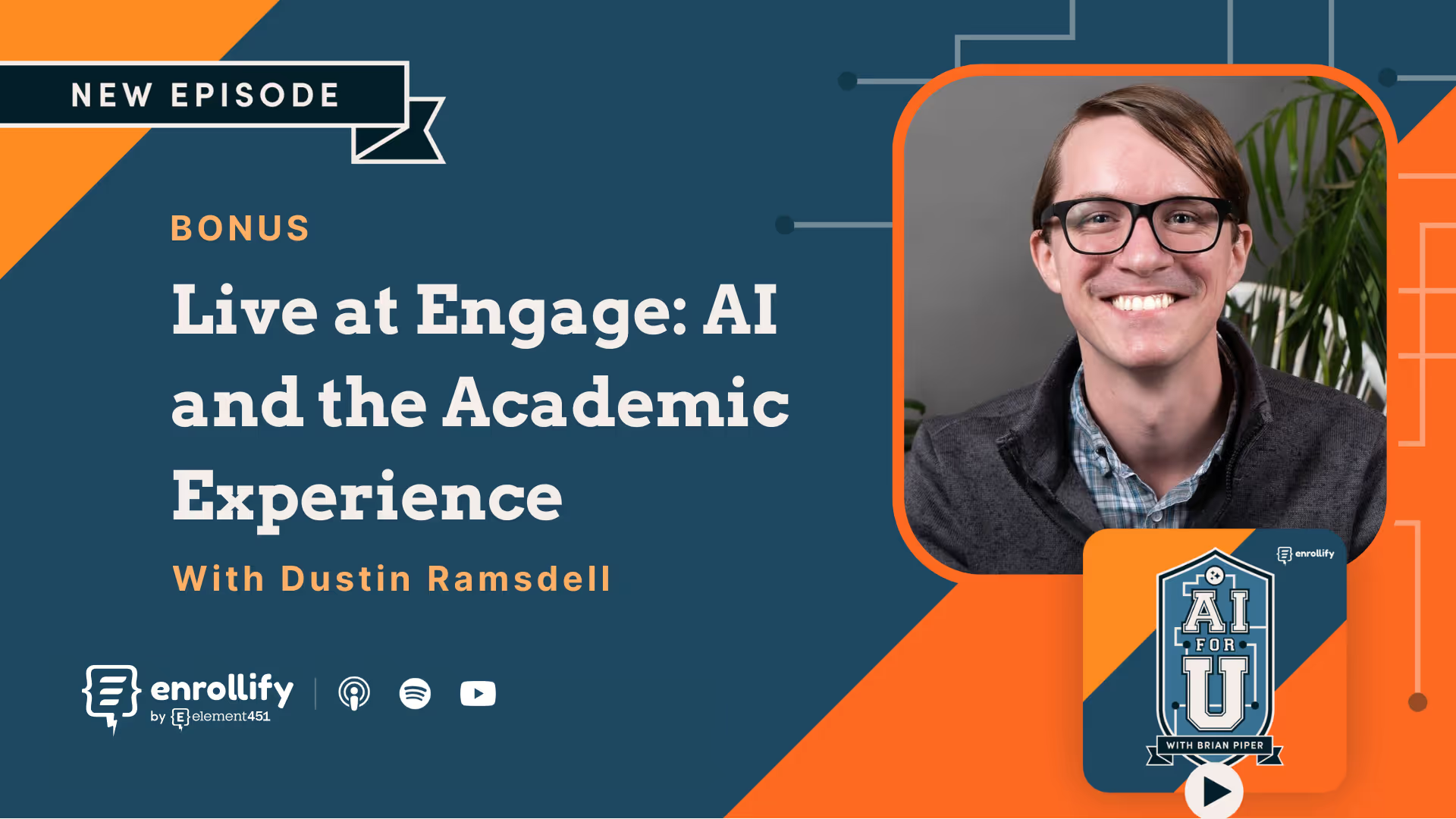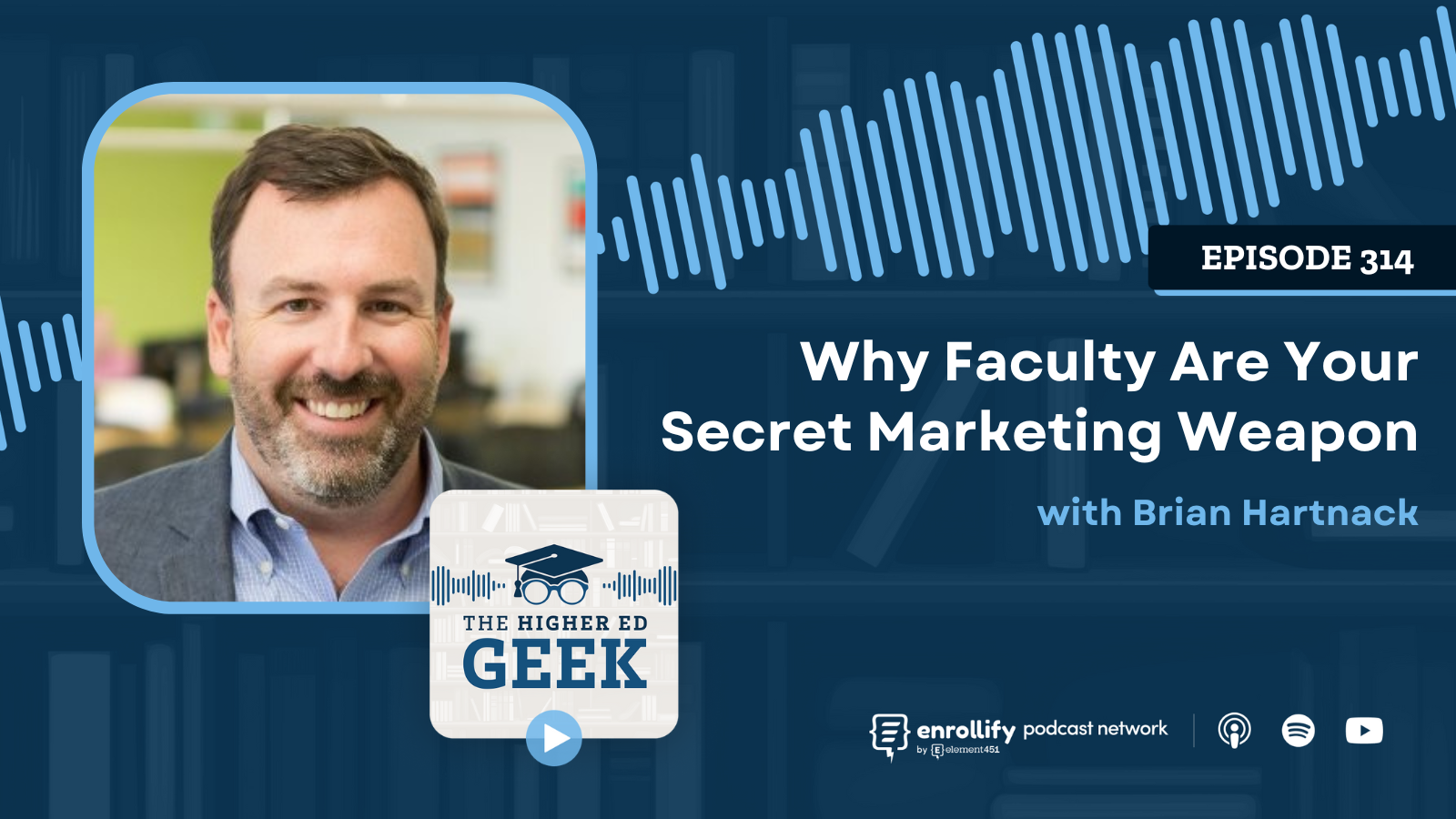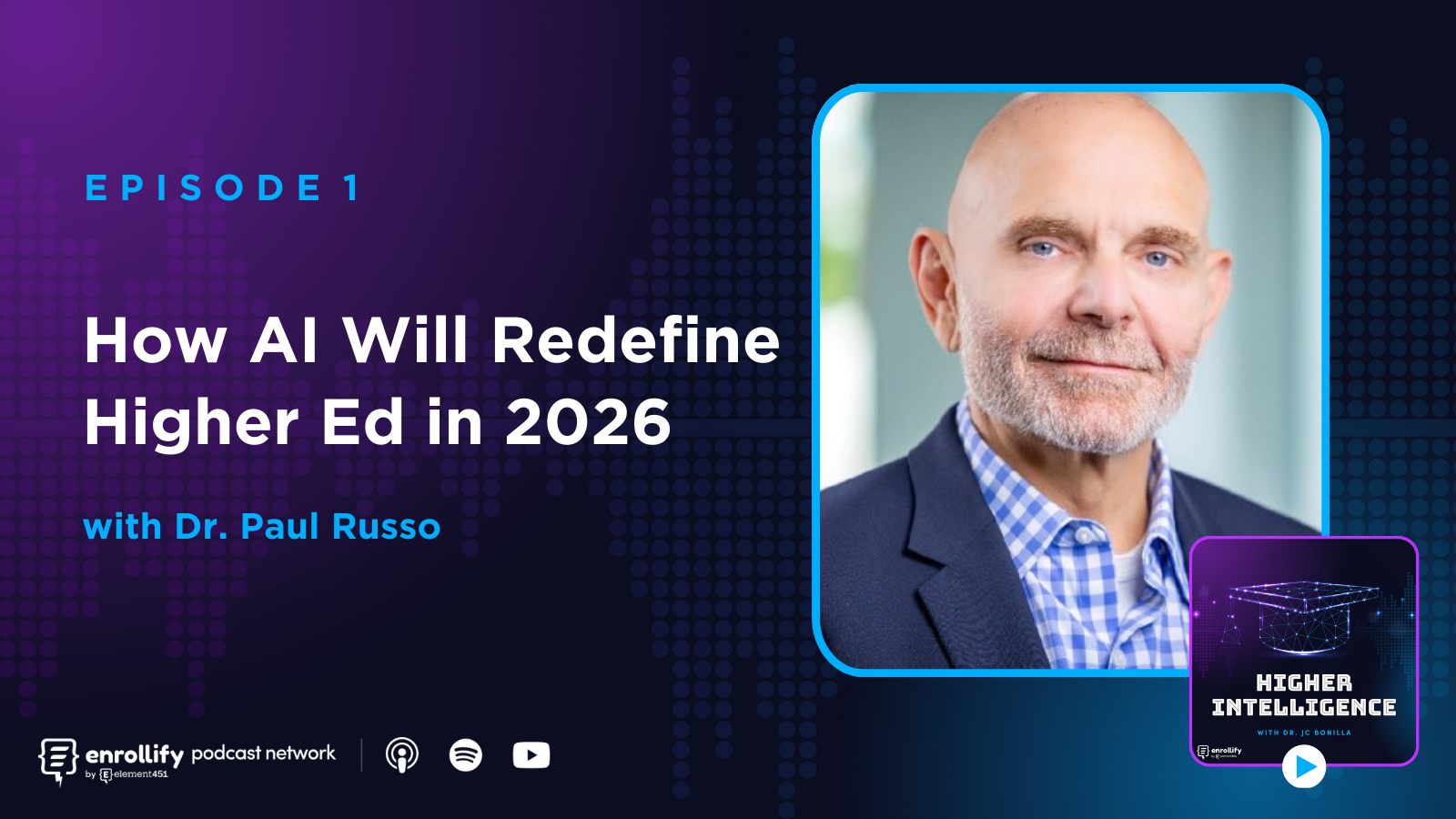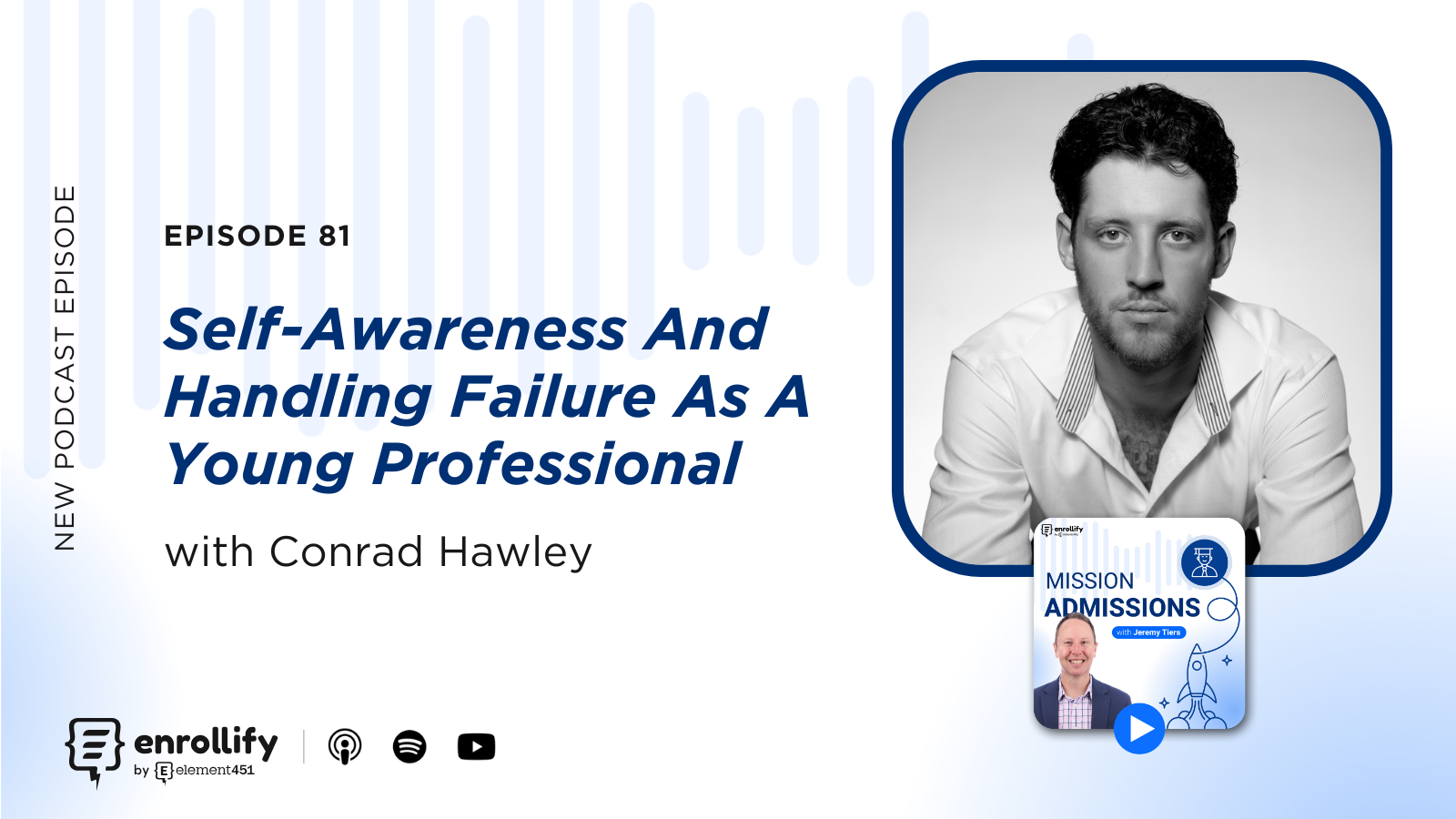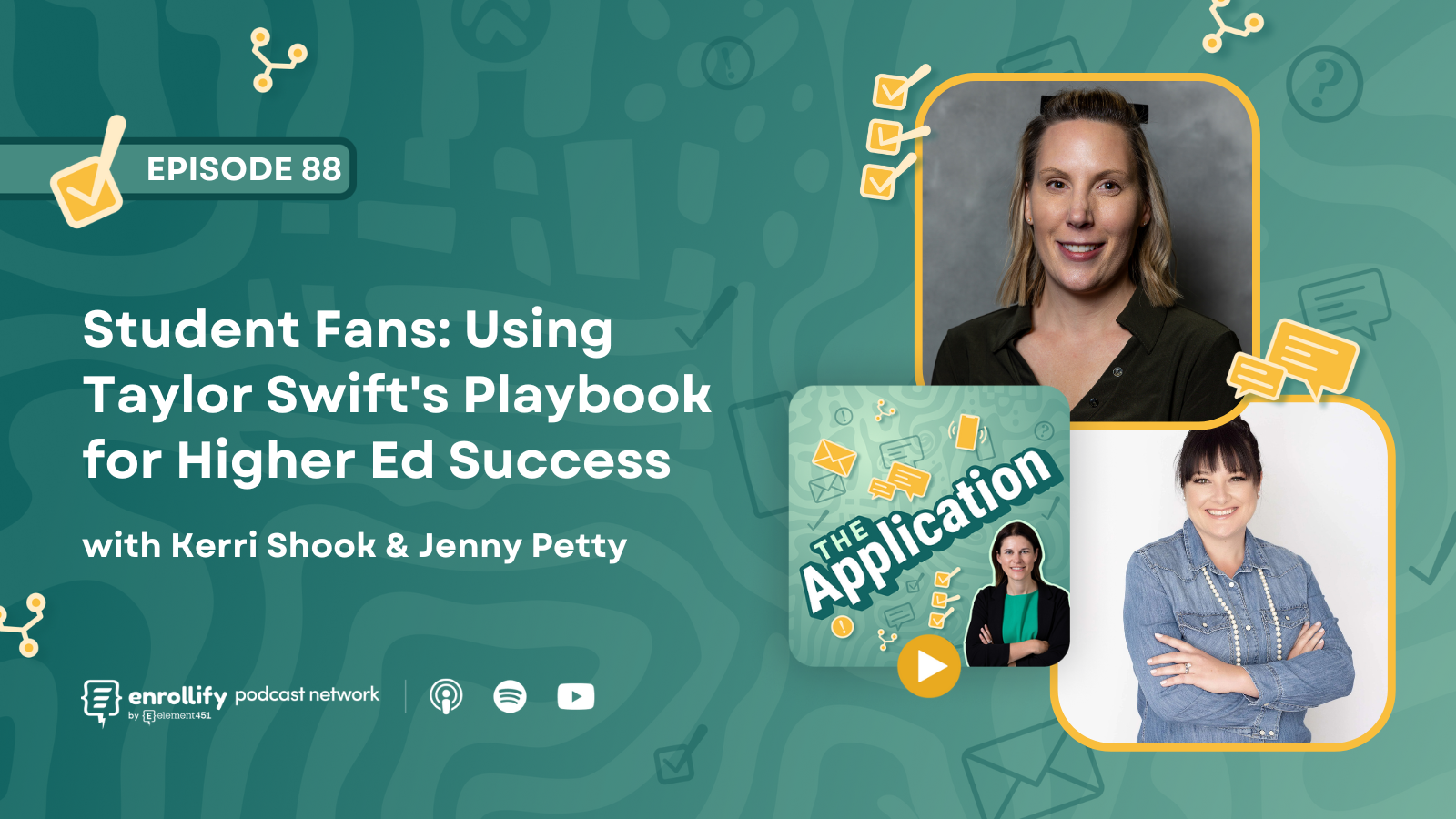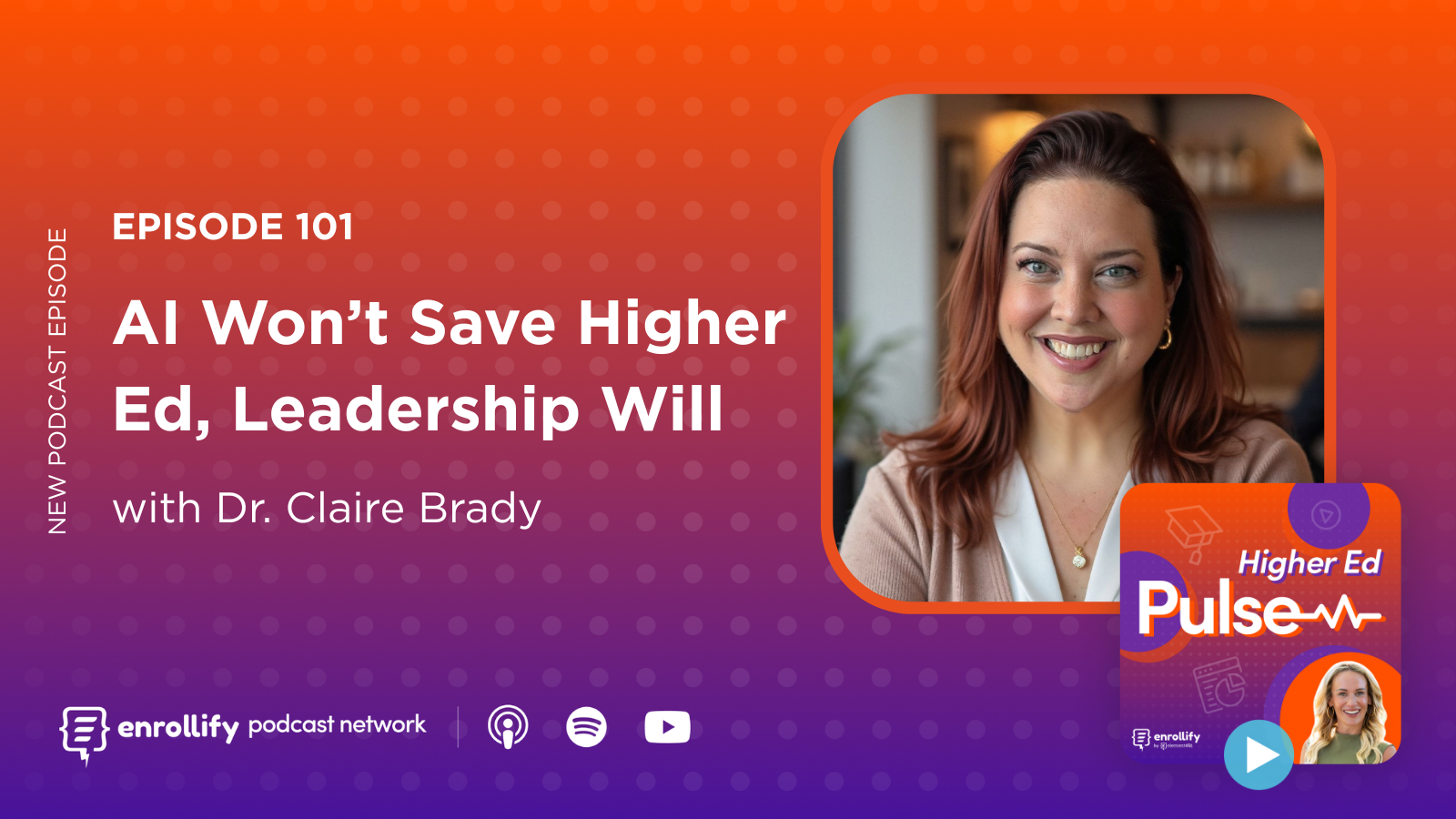About the Episode
About The Episode:
In this episode of AI for U, recorded live at the Engage Summit 2025, Brian sits down with Dustin Ramsdell—veteran higher ed professional and host of the Higher Ed Geek Podcast. With nearly 300 episodes under his belt, Dustin shares his evolving views on artificial intelligence in higher education, from initial skepticism to cautious optimism. Together, they unpack the opportunities, hesitations, and practical applications of AI that are shaping the future of the higher ed ecosystem.
Key Takeaways
- AI is catalyzing digital transformation across the student lifecycle—from enrollment to student support.
- Institutions are split: some are diving into AI integration, while others are cautiously waiting on the sidelines.
- AI literacy and intentional faculty training are critical to effective and ethical classroom use.
- Even skeptics are finding value in small-scale, practical AI tools for content creation and workflow enhancement.
- There’s a pressing need for higher ed to define policies and frameworks for AI use, rather than avoiding it altogether.
What opportunities does AI present for higher education professionals?
Dustin emphasizes that AI is less of a magic bullet and more of a powerful amplifier—a tool that enhances what already exists. In his view, AI has the potential to increase efficiency, automate workflows, and introduce agility across departments. From enrollment marketing to faculty workflows and student engagement, AI is now touching every corner of the ed tech landscape. For professionals in higher ed, this moment offers a unique chance to drive digital transformation by leveraging AI thoughtfully across the student lifecycle.
Why are some institutions hesitant to adopt AI?
Institutional hesitancy stems from a mix of prioritization challenges, lack of internal expertise, and cultural resistance. Dustin draws a parallel to the academic backlash against Wikipedia in its early days. Just as institutions once banned Wikipedia before understanding its value, many are now reluctant to embrace AI due to fear, uncertainty, or simply feeling overwhelmed by other pressing priorities. For many campuses, the solution isn't full-scale adoption or outright bans, but rather the creation of structured sandboxes—safe, guided environments where faculty and staff can experiment with AI in meaningful ways.
How are professionals like Dustin personally using AI?
Despite not working in an AI-forward organization, Dustin has found practical, incremental ways to embed AI into his personal workflows. He uses AI to brainstorm podcast episode titles, generate content ideas, and enhance audio production through tools like Adobe Podcast. For him, AI helps tackle creative inertia and streamline tedious processes—proving that even light-touch AI adoption can yield noticeable productivity gains. His approach serves as a model for how solo practitioners and small teams can begin exploring AI without diving in headfirst.
What are the risks of poor AI integration in the classroom?
Dustin raises a red flag around unintentional or poorly executed AI integrations in teaching and learning. He worries that some faculty may avoid AI altogether, while others may incorporate it in ways that actually undermine critical thinking and creativity. The biggest pitfall? Using AI in ways that don't align with learning outcomes—or worse, failing to explain why students should still do the work themselves. Intentional design and AI literacy training for educators are crucial to ensure that AI supports, rather than replaces, core academic skills.
What does the future of AI in higher ed look like?
Looking ahead, Dustin is excited about the rise of tailored AI agents—personalized digital assistants designed for specific campus roles and tasks. These agents could transform how support services and administrative functions operate, offering dynamic, real-time solutions. Still, he cautions that future success hinges on thoughtful, ethical design and equitable access. Institutions that prioritize purposeful integration and student-centered outcomes will lead the next wave of innovation in AI-enabled education.
Connect With Our Host:
Brian Piper
https://www.linkedin.com/in/brianwpiper/
About The Enrollify Podcast Network:
AI for U is a part of the Enrollify Podcast Network. If you like this podcast, chances are you’ll like other Enrollify shows too!
Some of our favorites include Generation AI and Mastering the Next.
Enrollify is produced by Element451 — the next-generation AI student engagement platform helping institutions create meaningful and personalized interactions with students. Learn more at element451.com.







